COP29: Rich Nations Offer USD 300 Billion for Climate Finance
By Gaurav Saini, Baku Nov 24, 2024 03:15
Developed countries offered USD 300 billion annually by 2035 to help developing nations tackle climate change at COP29, but the figure falls short of the Global South's demands.
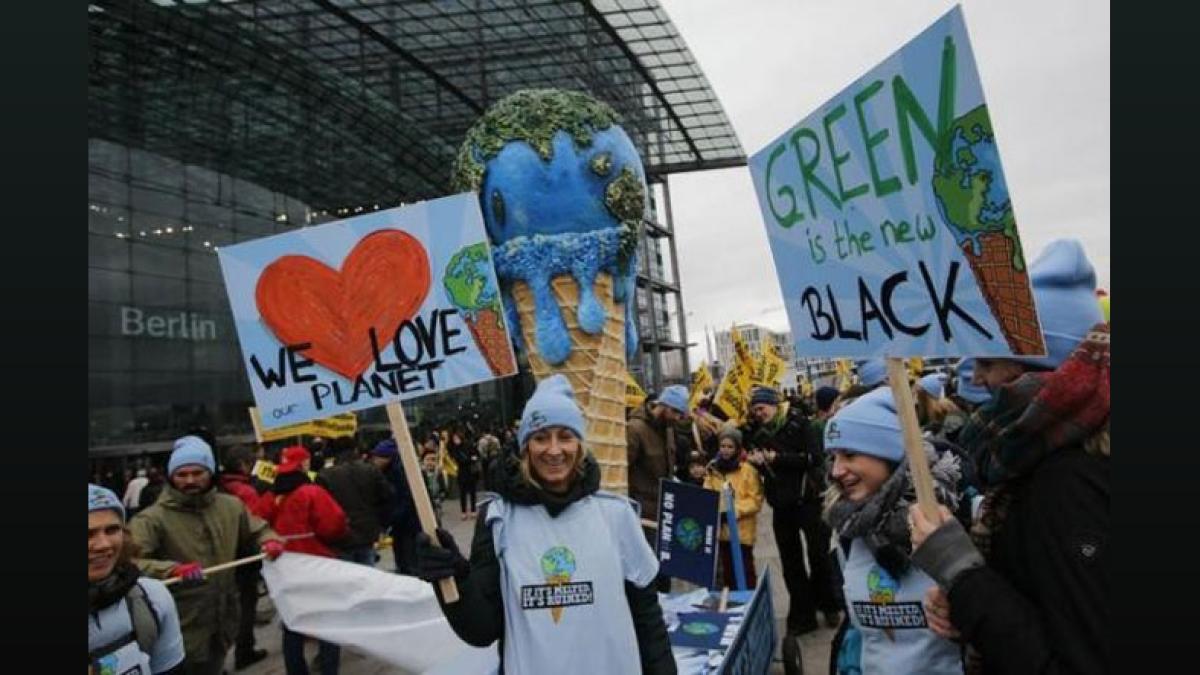
Baku (Azerbaijan), Nov 24 (PTI) Developed countries made a final offer of USD 300 billion annually by 2035 to help developing countries tackle climate change, hours after two groups of the world's most climate-vulnerable countries stormed out of the negotiating room at COP29 here.
The USD 300 billion figure, however, is a far cry from the USD 1.3 trillion the Global South has been demanding in the three years of talks.
The offer is part of the draft deal on a new climate finance package for developing nations, or the New Collective Quantified Goal (NCQG), which will be put before countries for approval in a plenary session shortly.
The new amount will replace the USD 100 billion figure pledged in 2009.
The draft deal also introduces the Baku to Belem Roadmap, an important request for Africa and other developing country groups to lay out a meaningful process towards aligning the global finance system with achieving the USD 1.3 trillion goal by 2035.
Issued after tiring, mind-numbing negotiations that continued for an extra day, it said countries would marshal a total of USD 300 billion per year by 2035 from a wide variety of sources -- public and private, bilateral and multilateral, including alternative sources.
There are references to Article 9 of the Paris Agreement explicitly, which makes clear that leadership in finance should be taken by developed countries.
The previous draft referred to Article 9.3, under which developed countries do not have a legal obligation to do so.
The USD 1.3 trillion figure is in the document, but it calls on "all actors", including public and private, to "work together" to reach this level by 2035.
It does not place the responsibility solely on developed countries.
It encourages developing countries to make additional contributions, including through South-South cooperation, to the goal but doesn't mention any specific amounts for least developed countries and small island states or for loss and damage.
The talks were thrown into turmoil after negotiators from the Least Developed Countries (LDC) group and the Alliance of Small Island States (AOSIS) walked out of the meeting of the heads of delegation, saying they were being "ignored" during consultations.
The LDCs said they were not consulted on the draft, which lacked a minimum financial allocation for them.
"Small Island Developing States and LDCs are among the very worst impacted by this climate crisis that we did not cause. Yet we have found ourselves continuously insulted by the lack of inclusion; our calls are being ignored," the AOSIS said in a statement.
Countries were required to reach an agreement on the new climate finance package for the developing world at the UN climate conference in Baku.
Developing nations have repeatedly said they need at least USD 1.3 trillion annually -- 13 times the USD 100 billion pledged in 2009 --starting from 2025 to meet their escalating climate challenges.
The USD 300 billion figure, however, is a far cry from the USD 1.3 trillion the Global South has been demanding in the three years of talks.
The offer is part of the draft deal on a new climate finance package for developing nations, or the New Collective Quantified Goal (NCQG), which will be put before countries for approval in a plenary session shortly.
The new amount will replace the USD 100 billion figure pledged in 2009.
The draft deal also introduces the Baku to Belem Roadmap, an important request for Africa and other developing country groups to lay out a meaningful process towards aligning the global finance system with achieving the USD 1.3 trillion goal by 2035.
Issued after tiring, mind-numbing negotiations that continued for an extra day, it said countries would marshal a total of USD 300 billion per year by 2035 from a wide variety of sources -- public and private, bilateral and multilateral, including alternative sources.
There are references to Article 9 of the Paris Agreement explicitly, which makes clear that leadership in finance should be taken by developed countries.
The previous draft referred to Article 9.3, under which developed countries do not have a legal obligation to do so.
The USD 1.3 trillion figure is in the document, but it calls on "all actors", including public and private, to "work together" to reach this level by 2035.
It does not place the responsibility solely on developed countries.
It encourages developing countries to make additional contributions, including through South-South cooperation, to the goal but doesn't mention any specific amounts for least developed countries and small island states or for loss and damage.
The talks were thrown into turmoil after negotiators from the Least Developed Countries (LDC) group and the Alliance of Small Island States (AOSIS) walked out of the meeting of the heads of delegation, saying they were being "ignored" during consultations.
The LDCs said they were not consulted on the draft, which lacked a minimum financial allocation for them.
"Small Island Developing States and LDCs are among the very worst impacted by this climate crisis that we did not cause. Yet we have found ourselves continuously insulted by the lack of inclusion; our calls are being ignored," the AOSIS said in a statement.
Countries were required to reach an agreement on the new climate finance package for the developing world at the UN climate conference in Baku.
Developing nations have repeatedly said they need at least USD 1.3 trillion annually -- 13 times the USD 100 billion pledged in 2009 --starting from 2025 to meet their escalating climate challenges.
Source: PTI
DISCLAIMER - This article is from a syndicated feed. The original source is responsible for accuracy, views & content ownership. Views expressed may not reflect those of rediff.com India Limited.
You May Like To Read
TODAY'S MOST TRADED COMPANIES
- Company Name
- Price
- Volume
- Vodafone Idea L
- 8.29 ( -0.84)
- 38643247
- Srestha Finvest
- 0.63 (+ 5.00)
- 36611024
- Home First Finance
- 1,074.55 (+ 2.10)
- 22560337
- G G Engineering
- 1.85 ( -0.54)
- 20632419
- Ola Electric Mobilit
- 93.26 (+ 6.68)
- 14710812
MORE NEWS

FSSAI Reclassifies Packaged Water as High-Risk,...
The FSSAI has reclassified packaged drinking water as a high-risk food category,...

Sebi Bans 'Baap of Chart' & 6 Others for...
Sebi has banned 'Baap of Chart' and six others for one year for providing unregistered...

RBI Urges Banks to Reduce Inoperative Accounts
The RBI has directed banks to reduce inoperative accounts urgently, citing concerns...



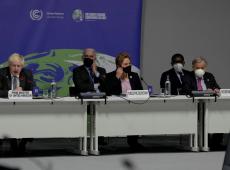
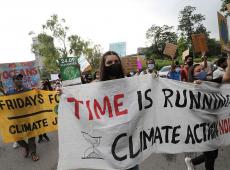
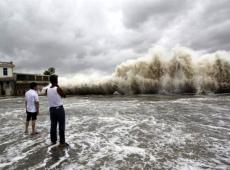
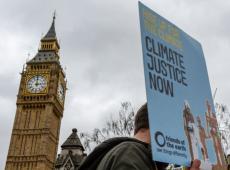
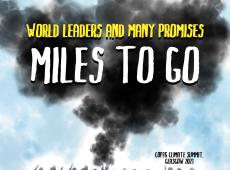
 © 2024 Rediff.com India Limited. All rights reserved.
© 2024 Rediff.com India Limited. All rights reserved.